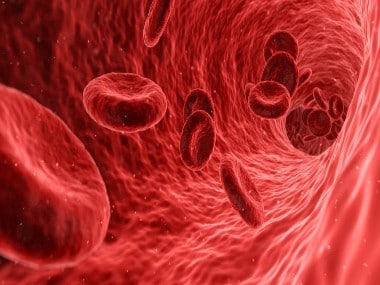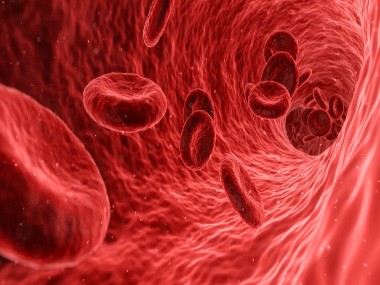Thalassemia is a chronic and genetic blood disorder due to which a patient’s body cannot make enough hemoglobin leading to anemia. This disease is passed from parents to children through genes and people suffering from it require blood transfusions to survive. To honour patients suffering from this disease, World
Thalassemia
Day is observed on 8 May. On this day, people also express gratitude to all scientists whose dedication and enduring efforts are making life better for Thalassemia patients. [caption id=“attachment_8347061” align=“alignleft” width=“380”]
 Representational image. Image by Arek Socha from Pixabay.[/caption] Theme This year the theme for World Thalassemia Day is ‘The dawning of a new era for thalassaemia: Time for a global effort to make novel therapies accessible and affordable to patients’. How it is observed Thalassemia International Federation (TIF) is holding many online events on World Thalassemia Day 2020. In view of the coronavirus pandemic, some activities have been postponed to 8 September. This year, TIF is holding a virtual discussion in which patient advocates will talk about the accessibility and affordability of novel therapies for thalassemia. Apart from this, it is organising a video challenge and writing contest. India reports most cases in the world India is known as the
thalassaemia capital
of the world with 40 million carriers, which means one in eight of thalassemia carriers live in India. Over 1 lakh patients across the country lose their life to the disease before they turn 20 due to lack of access to treatment. Every year 10, 000 children with thalassaemia major are born in India which approximately accounts for 10 percent of the total world incidence of thalassemia. Prevention and Treatment Thalassemia has no known cure but the
treatment involves
blood transfusion, bone marrow transplant and gene therapy, making the maintainence of treatment highly cost intensive for parents of children born with Thalassemia. According to a report in BB
C
, blood stem cells were extracted, treated and re-introduced in 22 patients in 2018 to stimulate red blood cell production. Out of the 22, 15 were able to stop transfusions altogether, while the remaining need fewer of them. The results of this gene therapy trial offered a hope that in future there would be reduced need for blood transfusions. But treatment remains expensive and out of reach for many Indians. This is why doctors and experts have been urging to put increased focus on prevention and awareness to help better management of the disease. And awareness is important because both or either parent of a child can be a thalassemia gene carrier without showing any symptoms or with just mild anemia, which went undetected throughout their lives. Carrier testing for at-risk relatives and prenatal testing are possible if the disease-causing mutations in the family are known. Doctors are also encouraging anemic parents to opt for prenatal testing of fetus for Thalassemia.
Representational image. Image by Arek Socha from Pixabay.[/caption] Theme This year the theme for World Thalassemia Day is ‘The dawning of a new era for thalassaemia: Time for a global effort to make novel therapies accessible and affordable to patients’. How it is observed Thalassemia International Federation (TIF) is holding many online events on World Thalassemia Day 2020. In view of the coronavirus pandemic, some activities have been postponed to 8 September. This year, TIF is holding a virtual discussion in which patient advocates will talk about the accessibility and affordability of novel therapies for thalassemia. Apart from this, it is organising a video challenge and writing contest. India reports most cases in the world India is known as the
thalassaemia capital
of the world with 40 million carriers, which means one in eight of thalassemia carriers live in India. Over 1 lakh patients across the country lose their life to the disease before they turn 20 due to lack of access to treatment. Every year 10, 000 children with thalassaemia major are born in India which approximately accounts for 10 percent of the total world incidence of thalassemia. Prevention and Treatment Thalassemia has no known cure but the
treatment involves
blood transfusion, bone marrow transplant and gene therapy, making the maintainence of treatment highly cost intensive for parents of children born with Thalassemia. According to a report in BB
C
, blood stem cells were extracted, treated and re-introduced in 22 patients in 2018 to stimulate red blood cell production. Out of the 22, 15 were able to stop transfusions altogether, while the remaining need fewer of them. The results of this gene therapy trial offered a hope that in future there would be reduced need for blood transfusions. But treatment remains expensive and out of reach for many Indians. This is why doctors and experts have been urging to put increased focus on prevention and awareness to help better management of the disease. And awareness is important because both or either parent of a child can be a thalassemia gene carrier without showing any symptoms or with just mild anemia, which went undetected throughout their lives. Carrier testing for at-risk relatives and prenatal testing are possible if the disease-causing mutations in the family are known. Doctors are also encouraging anemic parents to opt for prenatal testing of fetus for Thalassemia.
World Thalassemia Day 2020: India has roughly 40 mn carriers; here are key points about the chronic genetic disease
FP Trending
• May 8, 2020, 13:21:19 IST
This year, TIF is holding a virtual discussion in which patient advocates will talk about the accessibility and affordability of novel therapies for thalassemia
Advertisement
)
End of Article